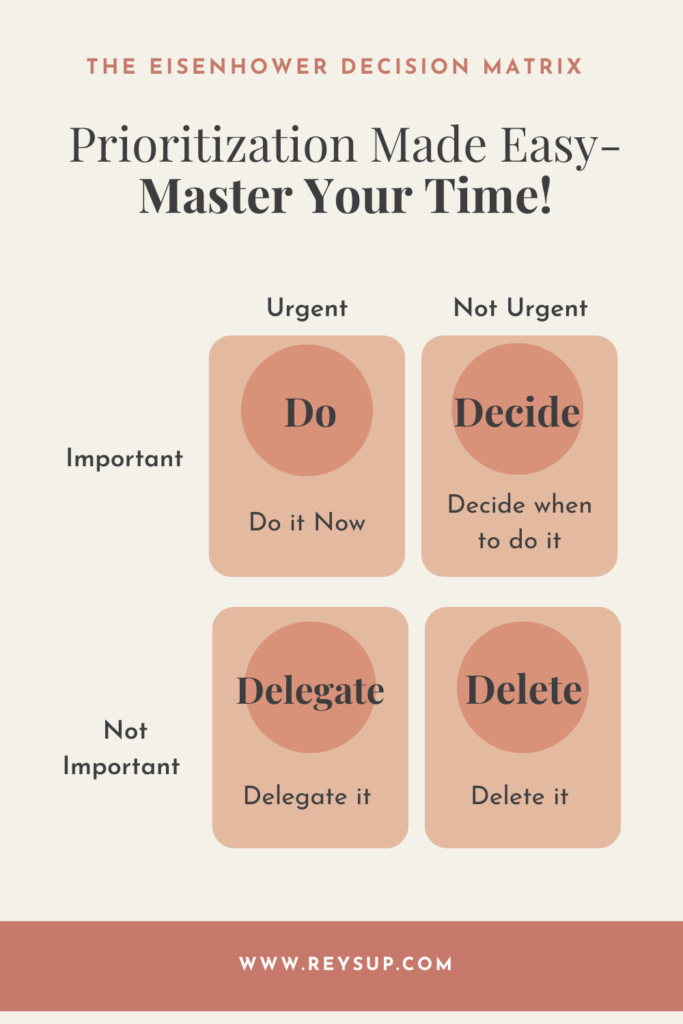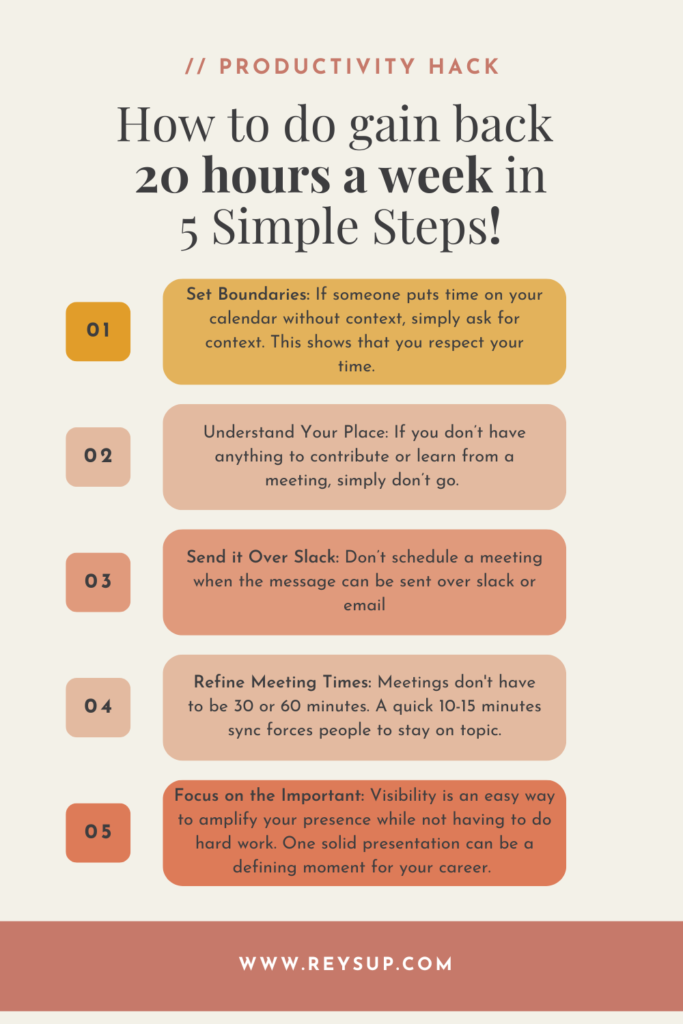In this article we share a complete guide on work smart strategies for career success.
In our technology based world, people often confuse working harder for working smarter. If you are wondering why you didn’t get promoted, it’s likely because you were burning the midnight oil answering emails and slacks instead of focusing on the needle moving projects. Let’s face it, your employer probably reinforced that by having everyone stay in the office late or by subconsciously making you think your green light needs to always be on slack. The key to true productivity and success isn’t about putting in more hours; it’s about making every hour you work more effective. Keep reading to see our guide that will help you streamline your work and personal life, ensuring you know work smart strategies for career success.

Work Smart Strategies for Career Success
Plan Your Week
Effective planning is the cornerstone of productivity. Rather than diving into Monday morning with a chaotic to-do list, take some time at the end of the week (Friday or Sunday) to map out the days ahead. This not only sets your next week up for success, but it sets your mind up to enjoy the weekend. Having a plan is what gives any successful individual individual leverage. Here’s how you can plan your week:
- Use Calendars: Both Google Calendar and Outlook Calendar are invaluable tools. Sync your work and personal schedules into one unified calendar to avoid double-booking and ensure an organize life. Think of your calendar as your new to do list – only much more visual and organized!
- Time Block: Create clear blocks for deep thinking, meetings, exercise, breaks and more. If you can, create consistency across your days with clear work start and end times. Remember, humans are creatures of habit. Setting you calendar up for success, will set you up for success.
- Set Priorities: Identify the most critical tasks for the upcoming week and schedule them first. I highly recommend doing a life audit if you have never done so before. One of my favorite ways to do this is by utilizing the Eisenhower Decision Matrix. It allows you to take a step back and really analyze your life.

Start Your Day with the Most Important Task
Tackle your most important task (MIT) first thing in the morning. This approach, known as “eating the frog,” ensures that you complete your highest priority task before distractions arise. By accomplishing something significant early in the day, you set a positive tone for the rest of your day.
Delegate
Delegation is essential for maximizing productivity. Identify tasks that can be handled by others and encourage your manager to let someone else take it on. Doing it all is a scam. High performers tend to get given more work than others because managers and leadership know they will get it done. If you keep getting more work added to your plate, take this as your sign to push back. This frees up your time to focus on high-impact activities. Trust your team and leverage their strengths.
Also Check Expert Dress Tips for Women to Impress Employers
Take Breaks and Go for Walks
Regular breaks are crucial for maintaining productivity. Short walks or brief periods away from your desk can rejuvenate your mind and body. Use techniques like the Pomodoro Technique to structure your breaks: work for 25 minutes, then take a 5-minute break. There have been many studies done that show that those who take regular breaks are exponentially more productive.
Stop the Meetings
Contrary to what many believe, meetings are a waste of time. A lot of times they consist of chit-chat, circling around actually solving a problem, and doing this that can easily be sent over slack or email. In my 9-5 job, I can easily be in over 20 hours of meetings in any given week. Add the fact that those meetings are scheduled at random times of the day, it totals out to being well over 25+ hours a week.

Here are the ground rules to stop the meetings, focus on output, and to work smarter:
- Set Boundaries: Do not go to a meeting where someone throws a random 30 minutes on your calendar without an agenda or context. If someone puts time on your calendar without context, simply ask for context. This shows that you respect your time.
- Understand Your Place: Before you attend a meeting, simply ask yourself 1) Do I have something to contribute and 2) Do I have something to learn? If the answer to these questions is no, then you should not be at the meeting. You should consistently be doing a calendar audit to ensure only relevant meetings are on your list.
- Send it Over Slack: Don’t schedule a meeting when the message can be sent over slack or email. Bonus: you have written documentation as well so you don’t have to send out meeting notes when you are all said and done.
- Refine Meeting Times: The standard meeting times are a thing of the past. I’m not sure why these are the defaults, but meetings don’t have to be 30 or 60 minutes. A quick 10-15 minutes sync not only forces people to stay on topic, but forces decisions to be made.
- Focus on the Important: If you are asked to present in a company wide or department wide meeting, put your time into that instead. While it can be overwhelming, visibility is an easy way to amplify your presence while not having to do hard work. Yes, you will need to prepare, but one well executed presentation can be a defining moment for your career.
Embrace the 80-20 Rule
The Pareto Principle, or the 80-20 rule, states that 80% of your results come from 20% of your efforts. Identify the tasks that yield the most significant results and focus your energy on them. This principle can enhance your productivity by ensuring you spend time on activities that really matter. This coupled with the Eisenhower matrix alone are two simple things you can do change your productivity.
Think about it this way. What is the one thing you can do today that will make you look good in year end reviews? Or what is the one thing you can do that will catapult your business to the next level and maximize revenue?
Ignore the Slacks, Emails, and Texts
Constant notifications can be a significant distraction. Going back to what was said at the beginning, plan your week and be maniacal about it. Set specific times to check emails, send slack messages, and save texts for your breaks rather than reacting to them immediately. This helps maintain focus and keeps your work flow uninterrupted.
Leverage AI & Technology
In the instance where you don’t have a team to delegate to, let me tell you that automation and AI tools can save you significant time and effort:
- Native Email Automation: Send weekly recurring emails to a single folder and send marketing emails to another folder. Setting up a simple folder structure with clear organization and automation from outlook will save you loads of time, and allow you to focus on what’s important.
- Do Not Disturb: Designating time for work, working out, sleep and play is SO underrated. I love using do not disturb on my iPhone while I am in bed and heads down working. If do not disturb isn’t enough to get you focused, try one of the phone lockboxes they make on amazon.
- Zapier: Automate repetitive tasks by connecting different apps and services.
- ChatGPT: Use AI to generate content, brainstorm ideas, summarize lengthy emails or even draft emails. This can significantly cut down the time spent on routine tasks.
Work Smart Strategies for Career Success Review Every Week
At the end of each week, review what you’ve accomplished. Assess what worked well and what didn’t. Use these insights to adjust your planning and strategies for the upcoming week. Continuous improvement is key to sustained productivity.
By adopting these strategies, you can transform how you work and live. Remember, the goal is not just to work harder but to work smarter. Prioritize, plan, and leverage the tools at your disposal to create a life that you want to live.
Looking for more tips on how to be productive? View the article here that talks about how to be productive when working from home.




